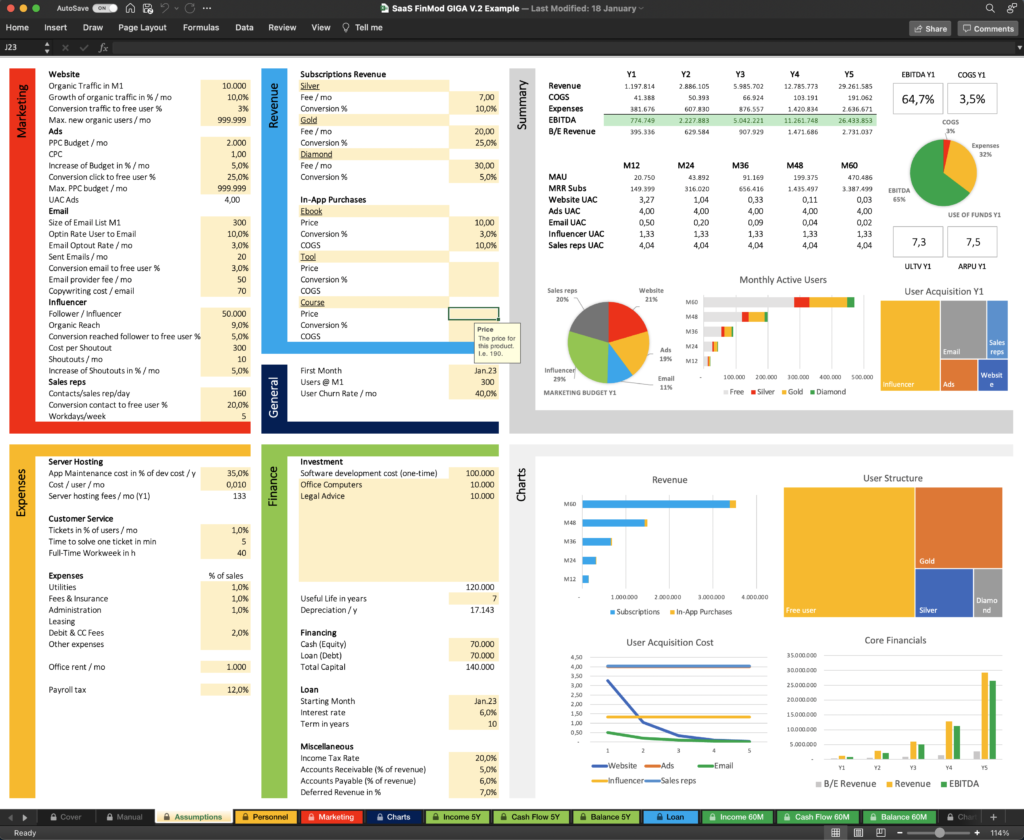Micro SaaS businesses are the future of software for a number of reasons. They tend to be much more nimble and focused than their enterprise counterparts, which allows them to quickly adapt to changes in the market. They’re also typically bootstrapped, which means they’re not reliant on outside funding sources. This gives them the freedom to experiment and take risks that bigger businesses might not be able to.
All of these factors combined make micro SaaS businesses the perfect candidates to lead the way in innovation and creativity in the software industry. So if you’re thinking about starting a software business, consider going the micro SaaS route. You just might be surprised at how successful you can be.
What is a micro saas business?
A micro SaaS business is a software as a service company that typically has a very niche focus. They tend to be much smaller than enterprise SaaS providers, with a leaner team and bootstrapped funding. Some examples of micro SaaS businesses include a tool that helps people book appointments online, a platform for buying and selling used cars, software that helps businesses track their expenses, and an app that helps people learn a new language.
What are the benefits of starting a micro saas business?
1. Niche player
Micro SaaS businesses are often niche businesses that serve a specific customer base. This allows them to be extremely nimble and responsive to customer needs. They can quickly adapt to changes in the market and respond to customer feedback more effectively than larger businesses. This makes micro SaaS businesses ideal for environments where change is constant and customer needs are constantly evolving. In addition, micro SaaS businesses tend to be more efficient and profitable than larger businesses, which makes them an appealing option for entrepreneurs.

2. Appealing to customers
Micro SaaS companies tend to have a very deep understanding of their target customer. They know what motivates them, how they make decisions, and what pain points they are trying to solve. This allows micro SaaS companies to create products that are highly relevant and appealing to their customer base. In addition, micro SaaS companies are usually very responsive to customer feedback. They are constantly iterating on their products and making small tweaks based on customer feedback. As a result, micro SaaS companies are able to maintain a high degree of customer satisfaction.
3. Big profit margins
When people think of a successful business, they typically envision a large company with hundreds or even thousands of employees. However, the truth is that businesses come in all shapes and sizes. In recent years, there has been a surge in the popularity of micro SaaS businesses. As the name suggests, these are businesses that offer software-as-a-service on a small scale. Micro SaaS businesses are often leaner than their larger counterparts and show lower COGS (cost of goods sold) and lower overhead costs in their operations. This means that they can enjoy higher profit margins, and they can be very profitable despite their smaller size.

4. Small teams
Any successful business, large or small, requires a team of dedicated workers who are passionate about the company’s success. This is especially true for micro SAAS businesses, which are typically run by a small team of passionate individuals. These team members are invested in the company’s success and work tirelessly to ensure that it meets its goals. In addition to being passionate about the business, they are also experienced and knowledgeable in the area of software development. As a result, they are able to create innovative solutions that meet the needs of the customer base. Without a team of dedicated professionals, it would be impossible for micro SaaS businesses to achieve success.
5. Easy to control
For entrepreneurs who want to be involved in every aspect of their business, a micro SaaS can be a great option. With a micro SaaS business, you will have complete control over every aspect of the business, from product development to marketing to customer service. You will also have the opportunity to build a team of experts in each of these areas, ensuring that your business is able to scale and grow as needed. In addition, a micro SaaS business will allow you to focus your time and energy on developing a single product or service, rather than spreading yourself thin across multiple businesses. If you are looking for a way to be completely involved in your business and have complete control over its success, a micro SaaS business is a great option.
6. Low overhead costs
One of the main advantages of a micro SaaS business is that it has low overhead costs. This is because micro SaaS businesses are typically run by a small team of individuals, and they do not have the same overhead costs as larger businesses. For example, they do not need to lease office space or hire a large number of employees. As a result, their operating costs are much lower, which allows them to enjoy higher profit margins.
7. Highly focused
Another advantage of micro SaaS businesses is that they are highly focused. This means that they have a deep understanding of their target market and what needs to be done to appeal to this market. They also have a clear vision for their business and know exactly what they need to do to achieve success.

8. Perfect for bootstrappers
They’re typically bootstrapped, which means they’re not reliant on outside funding sources. This gives them the freedom to experiment and take risks that bigger businesses might not be able to. Therefore, the micro SaaS business model is also a great option for those who want to grow their business organically.
9. Close-knit communities
If you’re thinking of starting a micro SaaS business, one of the things you’ll want to consider is the community aspect. Micro SaaS businesses tend to have a very close-knit community, which can be a great source of support and networking opportunities. Of course, every community is different, so it’s important to do your research and find one that fits your needs and interests. In addition, many micro SaaS communities also offer resources such as templates, tutorials, and discounts on tools and services.
10. Increasing popularity
The micro SaaS business model is becoming increasingly popular, as more entrepreneurs realize the benefits it offers. Micro SaaS businesses are generally easier to start and run than traditional software companies, and they often require less capital. Additionally, micro SaaS businesses tend to be more agile and flexible, and able to respond quickly to market changes. As a result, micro SaaS businesses are well-positioned to succeed in today’s rapidly changing business environment. Of course, no business model is perfect, and micro SaaS businesses do have some challenges. For example, it can be difficult to scale a micro SaaS business, and they may have trouble attracting top talent. However, overall, the micro SaaS business model has a lot to offer entrepreneurs who are looking for an alternative to traditional software companies.
11. Industry disruptor
Over the past few years, we’ve seen the rise of small SaaS businesses, that are focused on developing a single product or solution. While they may not have the branding or marketing budget of a larger SaaS company, they often make up for it with innovation and customer focus. As a result, micro SaaS businesses have been able to quickly gain market share and disrupt established players. And I believe that this trend is here to stay. Micro SaaS businesses will continue to proliferate, driven by the low barriers to entry and the increasing availability of capital. At the same time, customers will increasingly gravitate towards these businesses due to their focus on solving specific problems.
So, what do you need to start a micro SaaS business?
In order to start a micro SAAS business, you will need a few key things. First, you will need a great idea for a software application that solves a specific problem. Next, you will need to build out your minimum viable product (MVP), which is the bare-bones version of your software that you can use to test your idea. Finally, you will need to acquire some initial users or customers for your MVP in order to validate your idea and start generating revenue. Once you have these three things in place, you will be well on your way to starting a successful micro SaaS business!
Conclusion
The micro SaaS business model is a great option for entrepreneurs who want to start a software company. Micro SaaS businesses tend to be more agile and flexible than traditional software companies, and they often require less capital. Additionally, micro SaaS businesses are well-positioned to succeed in today’s rapidly changing business environment.
Next steps
Are you struggling to create a financial plan for your SaaS startup? I can help! My financial model template for a SaaS business takes the guesswork out and provides clear insights into how your business will grow.
Raising capital is essential for any startup, and my tool will help you do just that. It’s easy to use and provides all the information you need to make an informed decision about your business and convince investors.
Click on the link to see how my Financial Model for a SaaS Business can help you achieve your goals!

Peter is a solopreneur in Salzburg, Austria, a husband, and a family father. He runs a little publishing company, and blogs about starting and running online businesses. In his spare time, he enjoys hiking with friends and reading the Bible, and sometimes he takes a trip in his roaring old black 2001 Jaguar XJ8.





